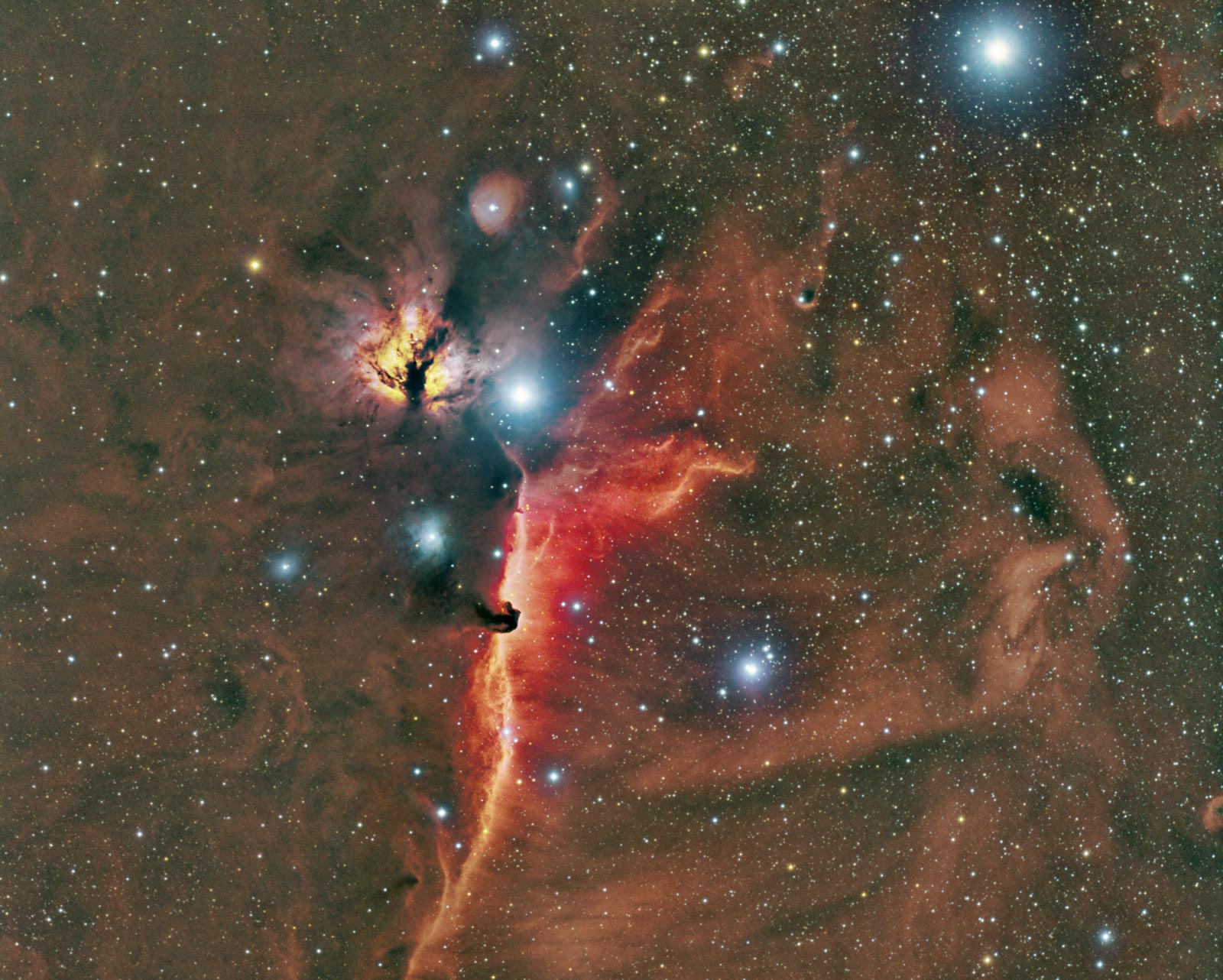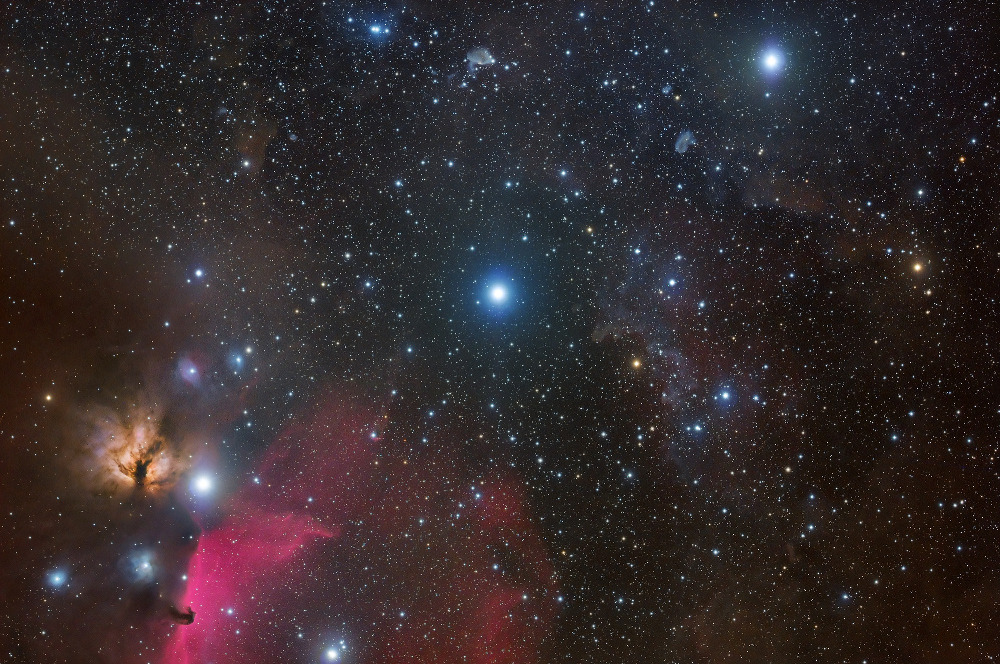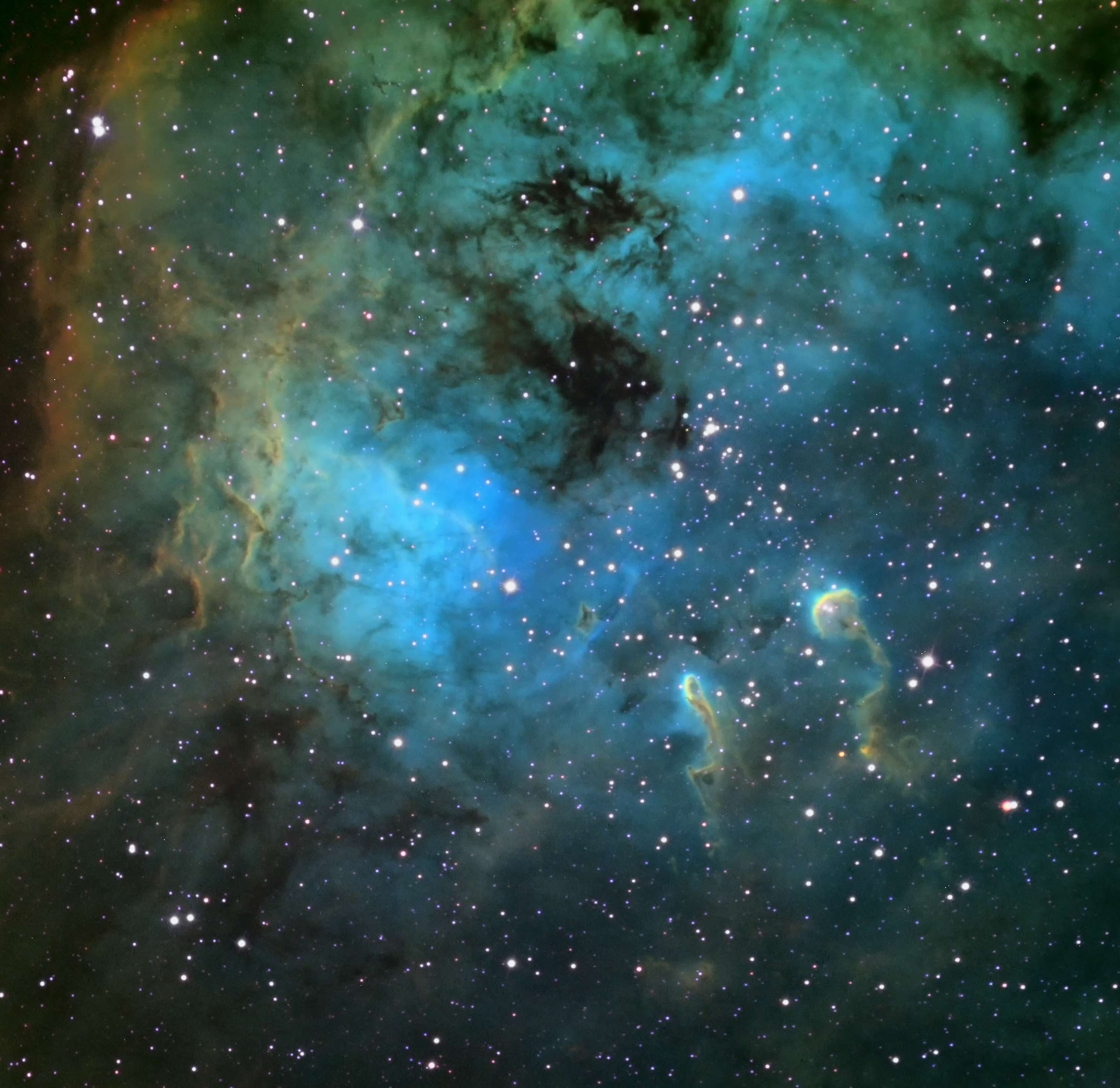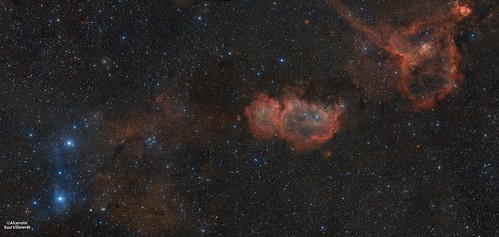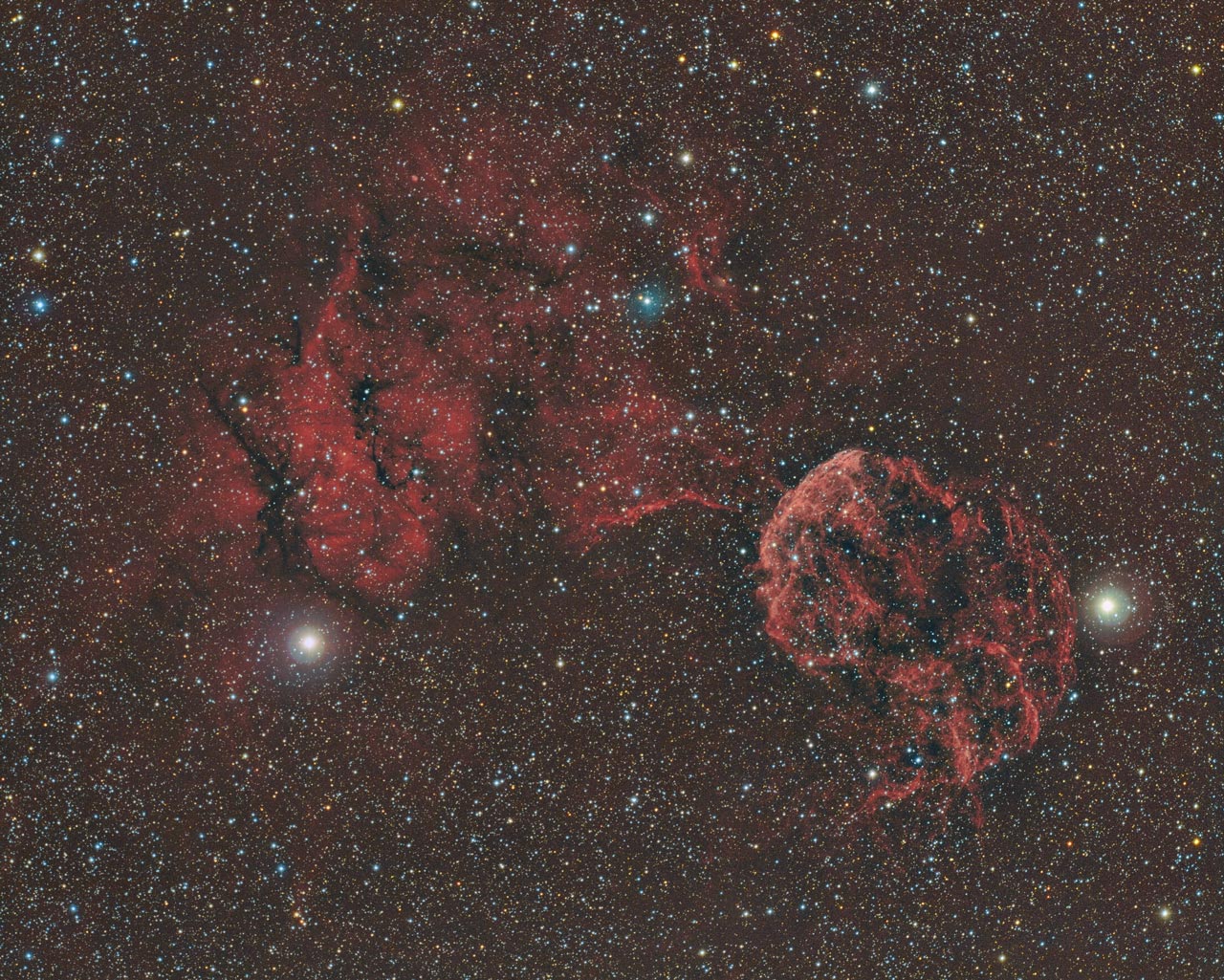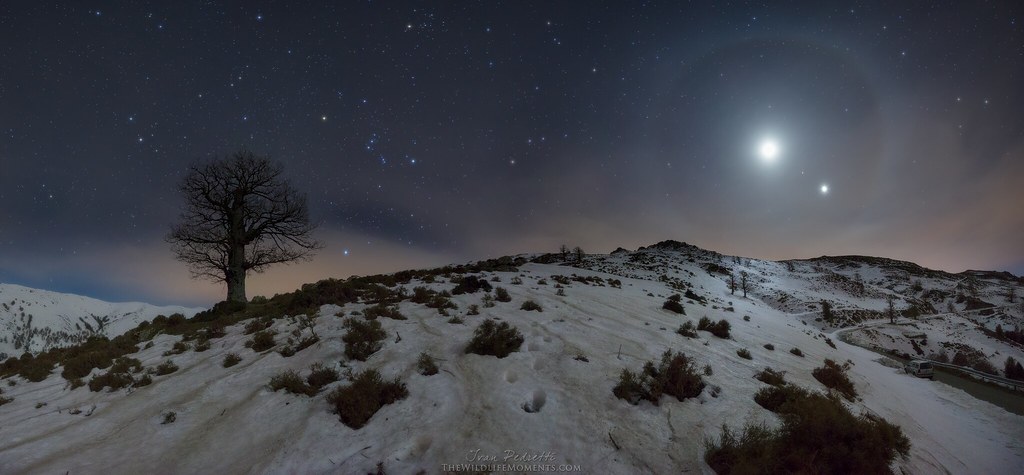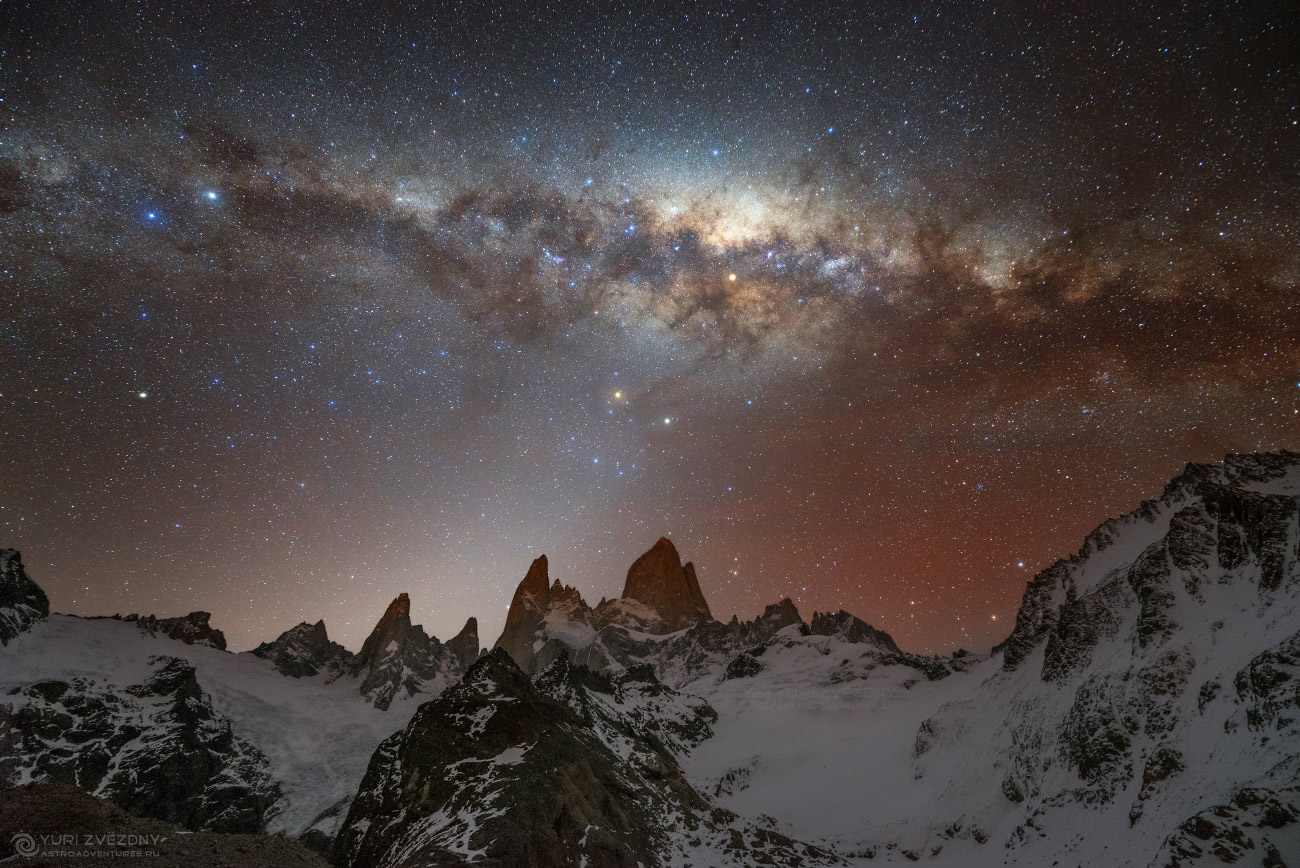Page 1 of 7
Submissions: 2017 February
Posted: Wed Feb 01, 2017 5:49 am
by bystander
__________________________________________________________________________________________________
Please post your images here.
Please see
this thread before posting images; posting images demonstrates your agreement with
the possible uses for your image.
If hotlinking to an image, please ensure it is under 400K.
Hotlinks to images over 400K slow down the thread too much and will be disabled.
Thank you!
_________________________________________________________________________________________________
<- Previous submissions
[c]«« Discuss Anything in Astronomy «» Visit The Asterisk Main Page «» See Introductory Astonomy Lectures »»
«« Introduce Yourself «» Please Read the Rules »»[/c]
Re: Submissions: 2017 February
Posted: Wed Feb 01, 2017 2:35 pm
by rcpettengill
Crescent Moon with Earthshine
URL:
http://astronomy.robpettengill.org/blog170131.html
Copyright: Rob Pettengill
This day-lapse HDR composite captures the crescent moon with earthshine as it appears in a small telescope.
Re: Submissions: 2017 February
Posted: Wed Feb 01, 2017 4:40 pm
by astrometbcn
Re: Submissions: 2017 February
Posted: Wed Feb 01, 2017 4:43 pm
by astrometbcn
Re: Submissions: 2017 February
Posted: Wed Feb 01, 2017 4:47 pm
by astrometbcn
Re: Submissions: 2017 February
Posted: Wed Feb 01, 2017 5:12 pm
by rwittich_de
Horsehead Nebula and Flame Nebula
Data and high resolution:
http://www.wittich.com/?p=2530
Re: Submissions: 2017 February
Posted: Wed Feb 01, 2017 5:38 pm
by MaPa
Re: Submissions: 2017 February
Posted: Wed Feb 01, 2017 8:53 pm
by pablo22
NGC7023 - Iris Nebula
http://astrofotky.cz/~Konihlav
Copyright: Pavel Pech
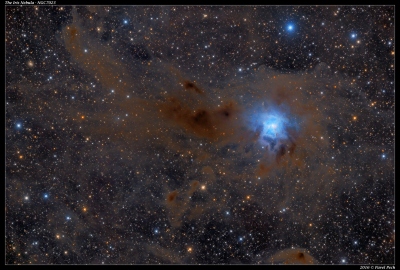 The Heart Nebula (IC1805, MEL15) - LHaRGB
http://astrofotky.cz/~Konihlav
The Heart Nebula (IC1805, MEL15) - LHaRGB
http://astrofotky.cz/~Konihlav
Copyright: Pavel Pech
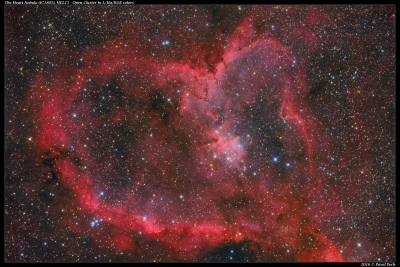

Lupus3 a.k.a. Bernes 149
Posted: Wed Feb 01, 2017 10:27 pm
by FrankSackenheim
Hello,
Lupus3 is one of nine dust clouds located in the Scorpius Centauros OB association. The Lupus Clouds (Fernando Comerón ESO, Handbook of Star Forming Regions Vol.II 2008) are star forming regions. Lupus3 is dominated by the two Herbig Ae/BE Stars HR5999 and HR6000 which form the blue reflection nebula Bernes 149.
Also visible in the FOV is a small reflection nebula called GN 16.01.6 in the bottom right of the picture, just below the snake like dark nebula.
The pictures were taken on 05th , 06th, 08th and 09th of July in 2016 at Kiripotib Guest Farm in Namibia/Africa.
http://www.astrophotocologne.de/astroph ... _Small.jpg
http://astrophotocologne.de/astrophotoc ... Medium.jpg
http://astrophotocologne.de/astrophotoc ... _Large.jpg
Takahashi FSQ 106 ED
Moravian G3-16200
24x600s L
17x600s R
18x600s G
19x600s B
CS Frank
Re: Lupus3 a.k.a. Bernes 149
Posted: Thu Feb 02, 2017 2:37 am
by Ann
FrankSackenheim wrote:Hello,
Lupus3 is one of nine dust clouds located in the Scorpius Centauros OB association. The Lupus Clouds (Fernando Comerón ESO, Handbook of Star Forming Regions Vol.II 2008) are star forming regions. Lupus3 is dominated by the two Herbig Ae/BE Stars HR5999 and HR6000 which form the blue reflection nebula Bernes 149.
Also visible in the FOV is a small reflection nebula called GN 16.01.6 in the bottom right of the picture, just below the snake like dark nebula.
The pictures were taken on 05th , 06th, 08th and 09th of July in 2016 at Kiripotib Guest Farm in Namibia/Africa.
http://www.astrophotocologne.de/astroph ... _Small.jpg
http://astrophotocologne.de/astrophotoc ... Medium.jpg
http://astrophotocologne.de/astrophotoc ... _Large.jpg
Takahashi FSQ 106 ED
Moravian G3-16200
24x600s L
17x600s R
18x600s G
19x600s B
CS Frank
That's a lovely wide angle portrait of a blue reflection and its surroundings!

It seems probable that the two stars, HR 5999 and HR 6000 (easy designations to remember) were born out of the elongated dust lane where they are now located. At least the dust lane to the east (left) of them is very thick and dark, which seems just right for star formation.
Interestingly, even though much of the blue light that the stars emit is scattered in the blue reflection nebula, the brightest component, HR 6000, still has a negative B-V index, -0.071 ± 0.002 in Johnson, and a tad bluer in Tycho. That is even more remarkable in view of the fact that the star is classified as an A1/A2III star, too. The "III", which means an evolved star, seems very unlikely.
But stars classified as A1 or later do so very rarely have negative B-V indexes. This one does, and it's solidly negative, too, not -0.001 or something. How remarkable!
Ann
A window to Orion
Posted: Thu Feb 02, 2017 8:58 am
by alcarreño
Copyrights: Raul Villaverde Fraile
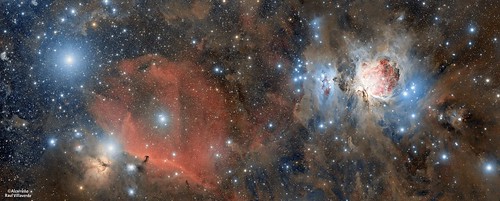 del caballo a orion
del caballo a orion by
Raul Villaverde, en Flickr
NGC 2359 Asterix's Helmet
Posted: Thu Feb 02, 2017 9:09 am
by strongmanmike
Re: Submissions: 2017 February
Posted: Thu Feb 02, 2017 11:04 am
by Paul Haese
Thors Helmet
Copyright: Paul Haese
Click here for larger resolution image.
Re: Submissions: 2017 February
Posted: Thu Feb 02, 2017 11:10 am
by moonrocks
Ride the Dragon's Tail
Full image here:
http://moonrocksastro.com/wp-content/up ... bula-b.jpg
Copyright: Paul C Swift
Re: Submissions: 2017 February
Posted: Thu Feb 02, 2017 11:55 am
by germinianimaicon@gmail.com
Eta Carinae
William Optics 80 ED II
Canon 450D Modded
Focal Reducer 0,8
26 x 300
Total: 2 Horas e 10 Minutos
Processing: DSS + PixInsight + PS6
Visible in the southern hemisphere, this beautiful nebula is much photographed by amateur astrophotographers.
It is possible to observe it even to the naked eye, due to its intense brightness.
All its splendor is revealed with a binocular or astrophotography.
 eta carinae
eta carinae by
maicon germiniani, no Flickr
Re: Submissions: 2017 February
Posted: Thu Feb 02, 2017 12:55 pm
by mikiclinic
Detail of IC410
http://www.miki-hosp.or.jp
Copyright: Nobuhiko Miki
This image was taken with 20inch RC& ALTA09000 CCD camera.
ASTRODON 3nm narrowband filter and log exposure SII/HA/O3:240min/240min/240min
Re: Submissions: 2017 February
Posted: Thu Feb 02, 2017 2:17 pm
by jcbo
Re: Submissions: 2017 February
Posted: Thu Feb 02, 2017 2:45 pm
by mhultstrom
Mosaic of M81 and M82 captured using a remote telescope at iTelescope's site in New Mexico. Final exposure 60x300s for M81 and 58X300s for M82 making a total of 9h50min.
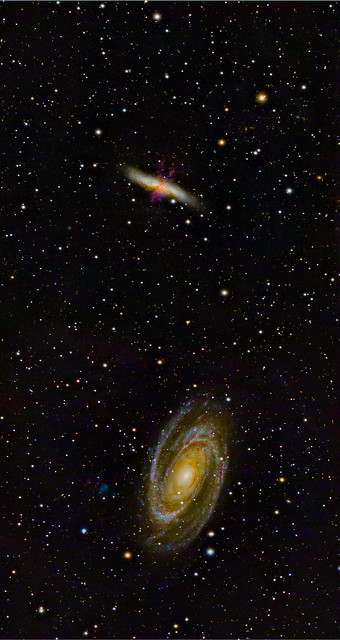 M81-60x300s-M82-58x300s-T3-mosaic
M81-60x300s-M82-58x300s-T3-mosaic by
Michael Hultström, on Flickr
Thanks for you consideration,
Michael
Re: Submissions: 2017 February
Posted: Thu Feb 02, 2017 3:09 pm
by PatrickWinkler
VDB 14 / 15
lager version:
http://www.celestialobjects.net/vdb15.html
Patrick Winkler
Soul, Heart and Vdb 14/15
Posted: Thu Feb 02, 2017 3:46 pm
by alcarreño
Re: Submissions: 2017 February
Posted: Thu Feb 02, 2017 4:19 pm
by rwittich_de
Re: Submissions: 2017 February
Posted: Fri Feb 03, 2017 1:23 am
by astrochuck
M42 with Narrowband Filters
copyright: Chuck Manges
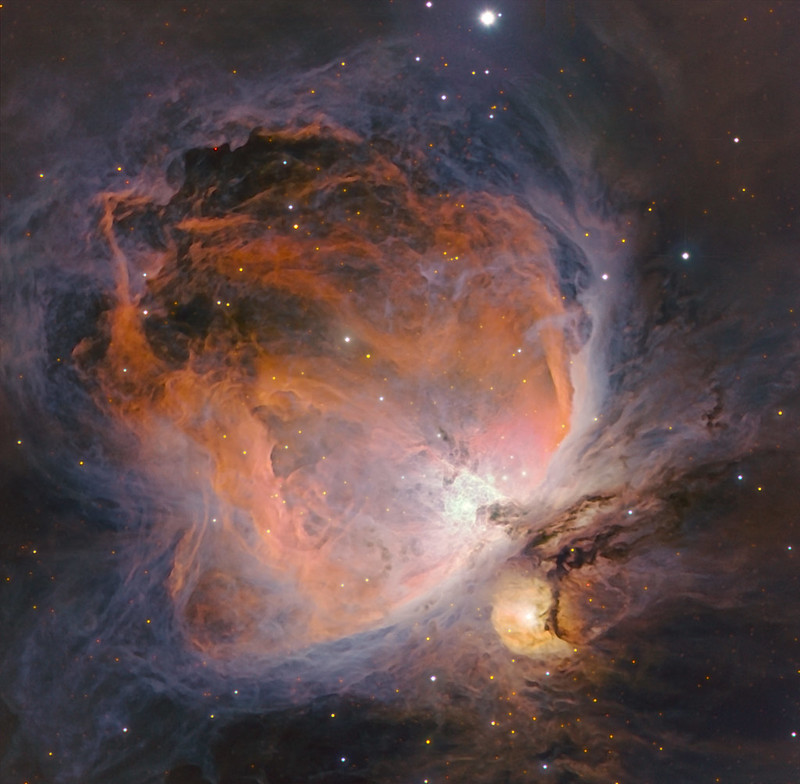 M42 In Narrowband
M42 In Narrowband by
Chuck Manges, on Flickr
Re: Submissions: 2017 February
Posted: Fri Feb 03, 2017 10:52 am
by thewildlifemoments
Re: Submissions: 2017 February
Posted: Fri Feb 03, 2017 12:03 pm
by artem
The Anteater Nebula in Corona Australis
The image was taken at the Namibian farm near Gamsberg mountain over 5 nights
Total exposure time 26,5 hours
Canon 5DMkII(modifyed)
Newton200/4,Winne2.5"
Namibia
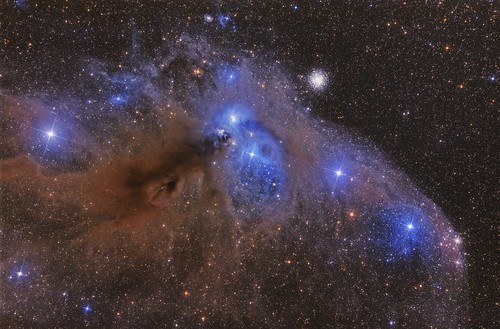 The Anteater Nebula in Corona Australis
The Anteater Nebula in Corona Australis by
Artem, on Flickr
Re: Submissions: 2017 February
Posted: Fri Feb 03, 2017 1:11 pm
by shtutik
Fitzroy
Author's site:
http://www.astroadventures.ru/
Copyright: Yuri Zvezdny
a7s, 14mm, f/2.8, 30 sec, iso 5000
